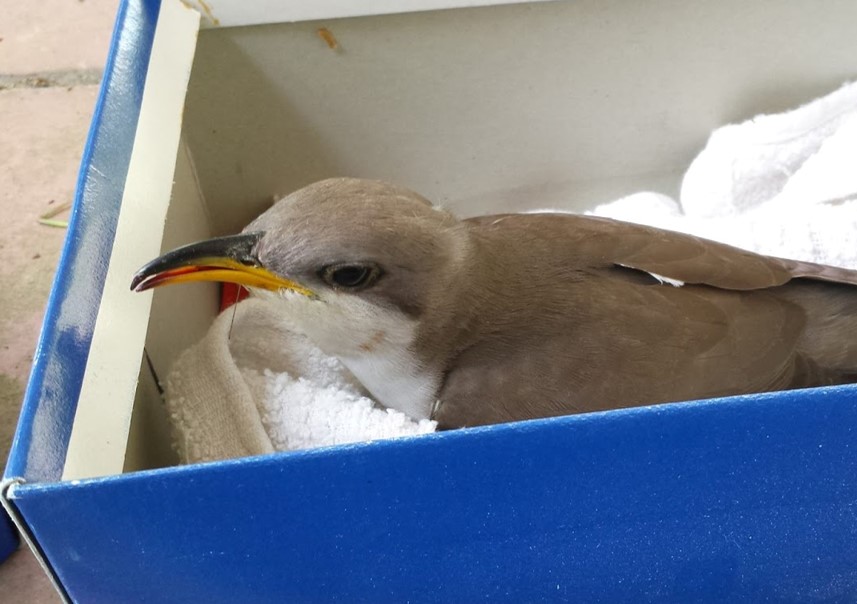PLEASE NOTE: Duval Audubon Society is not licensed to rescue or accept injured birds.

What to do if you find an orphaned or injured bird
We suggest you observe the bird for 20 minutes to make sure it is indeed injured. This is particularly important during nesting season when you might think a young fledgling has been orphaned. If the bird isn't dragging its wing, limping or falling over, LEAVE IT ALONE! Click here for more information on orphaned and injured birds.
If you determine the bird indeed needs rescuing, place the bird in a towel-lined box. Make sure it has a few air holes. Keep the box away from air conditioning or drafts. It is important that you DO NOT FEED IT ANYTHING and DO NOT GIVE IT ANY FLUIDS. Take the bird to a licensed wildlife rehabilitator such as The Ark Wildlife Rescue and Rehabilitation. In addition, some veterinarians may accept the injured bird.
We at Duval Audubon are not licensed to rescue or accept injured birds.
What to do if you find a dead bird
The Florida Fish and Wildlife Conservation Commission (FWC) works cooperatively with the Florida Department of Health on a wild bird mortality database. This project was initiated to support surveillance for bird die-offs, monitor for West Nile Virus, and is now also being used to monitor for avian influenza. FWC is also interested in monitoring bird electrocutions from power lines and poles so that faulty facilities may be repaired.
If you find a dead bird, please review the information about avian diseases on the FWC website, or call your local FWC regional office. Your reports will assist in tracking the causes of bird mortality and surveying for avian influenza and other avian diseases.
If you suspect a fish, boating, or environmental law violation, report it to FWC's Wildlife Alert Hotline.
Other Contacts
The Ark Wildlife Rescue and Rehabilitation - call Karen at 904-679-1533.
The Wildlife Rescue Coalition of Northeast Florida - a non-profit organization dedicated to the care of injured, orphaned, and displaced wild animals that are native to Florida. However, this organization does not take birds.
